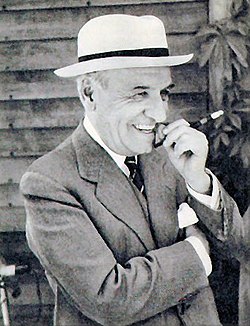Ortega y Gasset Quote
This leads us to note down in our psychological chart of the mass-man of to-day two fundamental traits: the free expansion of his vital desires, and therefore, of his personality; and his radical ingratitude towards an that has made possible the ease of his existence. These traits together make up the well-known psychology of the spoilt child.
Ortega y Gasset
This leads us to note down in our psychological chart of the mass-man of to-day two fundamental traits: the free expansion of his vital desires, and therefore, of his personality; and his radical ingratitude towards an that has made possible the ease of his existence. These traits together make up the well-known psychology of the spoilt child.
Tags:
existentialism
Related Quotes
About Ortega y Gasset
José Ortega y Gasset (; Spanish: [xoˈse oɾˈteɣaj ɣaˈset]; 9 May 1883 – 18 October 1955) was a Spanish philosopher and essayist. He worked during the first half of the 20th century while Spain oscillated between monarchy, republicanism and dictatorship. His philosophy has been characterized as a "philosophy of life" that "comprised a long-hidden beginning in a pragmatist metaphysics inspired by William James and with a general method from a realist phenomenology imitating Edmund Husserl, which served both his proto-existentialism (prior to Martin Heidegger's) and his realist historicism, which has been compared to both Wilhelm Dilthey and Benedetto Croce."
